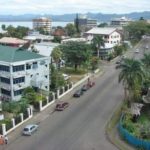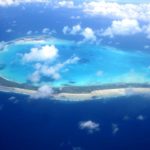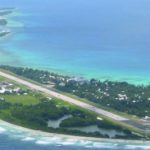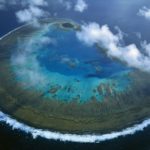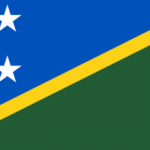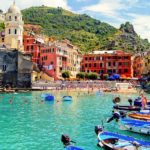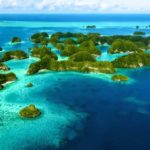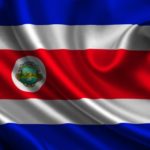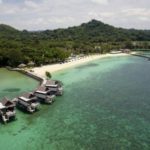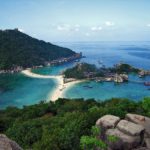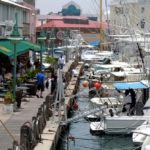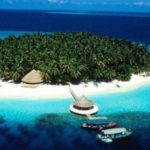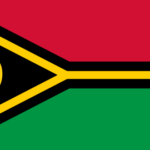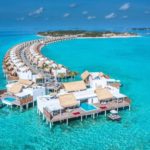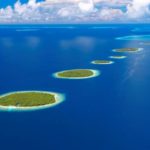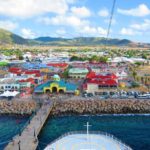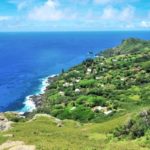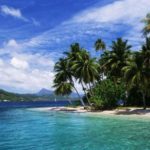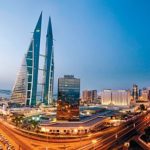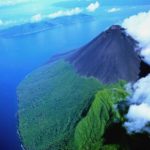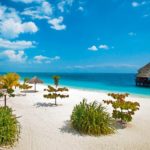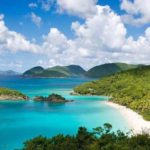Fiji Islands
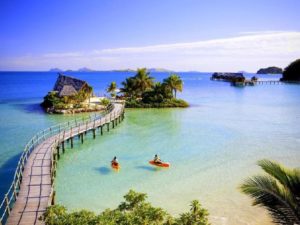 Fiji is an island nation perfect for an exotic holiday. However, few people know interesting details and details. Let’s get acquainted with this amazing country! The islands of Fiji are still a rather unexplored tourist object in the post-Soviet space. That is why you need to know some small, but very important points – they will make your trip much more pleasant.
Fiji is an island nation perfect for an exotic holiday. However, few people know interesting details and details. Let’s get acquainted with this amazing country! The islands of Fiji are still a rather unexplored tourist object in the post-Soviet space. That is why you need to know some small, but very important points – they will make your trip much more pleasant.
Over the past five years, the people of Fiji have been called the “Most Friendly People of the World”, and this title really hides the truth. Fijians are very calm, relaxed, they enjoy life and greet everyone around them with Bula.
They are very responsive and will gladly give a hand on slippery stones, show a school of fish among the coral reefs or take care of the necessary temperature in the room. So why not visit this wonderful country and these benevolent people?
Most travelers travel to Fiji via international air travel, in other words, by plane. The airport is located in the city of Nadi, on the main island of Viti Levu. You can get to other islands of Fiji using local flights, ferry or boat. Cruise ships make voyages from several places popular in Fiji. Cruises in the South Pacific can last from five days to a month depending on the area from which you depart.
On the main island of Fiji – Viti Levu, it will not be difficult to maintain both mobile communications and a wireless Internet connection. You can call in advance with the administrator of the hotel / resort or with a mobile service provider to clarify. If anything, it is not difficult to buy a SIM card and connect a local mobile connection. Suva, the capital of the Republic of the Fiji Islands, is quite a respectable city with European buildings and all the attributes of modern civilization.
As for the money, in the Fiji Islands, the main currency is the Fiji dollar, it is about 0.55 US dollars. Most products are relatively inexpensive, but some resorts tend to add a bit of luxury, selling expensive lotions, sunglasses, etc. If you are going to use a credit card, then know that you may have to pay a commission of 3-5%. It is best to use cash or travelers checks.
You can easily move around Fiji by taxi, using buses and even limousines. To move between the islands, you can use ferries, boats and seaplanes. The transport itself moves on the left side of the street. Few of the locals can afford a car, so they try to use other forms of transport.
All islands of Fiji are fluent in English, although the local and have their own Fijian dialect, which varies from village to village. At school, children must pass English, and if not – they fail the exams!
Sometimes “Bula” can be heard on the streets of Fiji, which means hello and “Vinaka” is thanks. You may even learn to speak Fijian “good morning” and “goodbye.”
More than 85% of the land in Fiji belongs to local villages. And although it is easier to slip into poverty in a village, villagers do not seek to change their place of residence. Villages are self-sufficient, they do not depend on food from outside and economic policy. Children are healthy and happy, they regularly attend schools and churches. Each village helps another – the collective spirit is very developed here!
The main export industry in Fiji is sugar production. The economy is mostly based on agriculture and forestry, and, of course, tourism.
The climate in Fiji is warm and varies little throughout the year. Technically, winter in Fiji comes at a time when summer is in the Northern Hemisphere. However, it is impossible to name such a season in winter – the temperature is very comfortable, about 28-32 degrees, all year round. The rainy season lasts from November to April.
As for the food that is familiar to the people of Fiji, it is very good! First, in the local dishes there are countless fruits and vegetables. Violent tropical rains stimulate abundant growth, so many rural residents sell locally grown mangoes and papayas right on the roadsides. Also popular with local and root vegetables.
It is unlikely that anyone will be surprised that fish and other seafood are the main dish in Fijian diets. Seafood is included in the main menu, but you can also choose roast pork or chicken dishes. To all this, rice and noodles are usually served. Indian cuisine influenced local dishes, which is manifested in luxurious spices. You should also try butter from New Zealand and numerous homemade jams and jellies.
If you have the opportunity to visit the Fijian village, and this is really very interesting, then try the food cooked in the earthen oven, called “Lovo”. And do not return from the village without taking part in the coffee ceremony! Coffee is the national drink of Fiji – also known as Yacuona, it is made from ground pepper powder mixed with water, which is then served in a special “beat” cup made from coconut shell.
But the best thing about Fiji is of course amazing beaches. Turquoise ocean water, white sand, soft gentle sun, lush vegetation along the coast, and silence, this is what you need for a relaxing holiday.
Of course, you can talk very much about Fiji and still a lot, but now you will be more prepared, knowing what this amazing country is. It remains only to get to know her for real, live!
